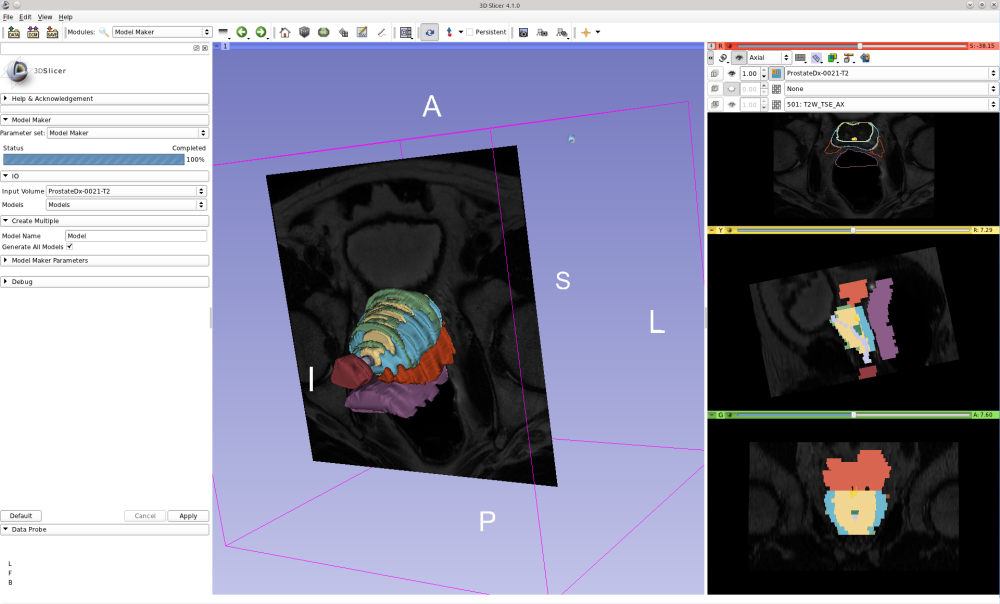
Prostate cancer T1- and T2 -weighted MRIs acquired on a 1.5 T Philips Achieva by combined surface and endorectal coil include dynamic contrast-enhanced images obtained prior to, during and after I.V. administration of 0.1 mmol/kg bodyweight of Gadolinium-DTPA. For scientific inquiries relating to the data-set please contact Drs. C. Carl Jaffe or Nicolas Bloch at carl.jaffe@bmc.org or nicolas.bloch@bmc.org.

Corresponding clinical metadata (XLS format) and 3D segmentation files (NRRD format) are offered as a supplement to this image collection. The XLS file contains pathology biopsy and excised gland tissue reports and the MRI radiology report for most of the collection's 54 prostate cancer cases.
The software used to generate the NRRD files on the MR T2W_TSE_AX image sequences was 3DSlicer (http://www.slicer.org/). The 3DSlicer NRRD files allow visualization and downstream analysis of the following prostate components: prostate gland boundary; internal capsule; central gland, peripheral zone; seminal vesicles; urethra; cancer – dominant nodule; neurovascular bundle; penile bulb; ejaculatory duct; veru-montanum; rectum. Presently there are available mark-ups of 5 cases (case extension #'s 0006, 0014, 0019, 0021, 0048) with 30 more cases in process. These markups are made public courtesy (and copyrighted by) Dr. Nicolas Bloch as portions of his forthcoming online prostate cancer image atlas.
Note: See Section 3.7 of TCIA User Guide for help with Shared Lists.
This collection originally consisted of 12 cases submitted 2011-09-21. An additional 25 new cases were added 2012-03-15, along with corresponding metadata.
Collection Statistics |
|
|---|---|
Modalities |
MR (T1, T2, and DCE sequences) |
Number of Patients |
37 |
Number of Studies |
37 |
Number of Series |
144 |
Number of Images |
12,887 |
You can view and download these images on the Cancer Imaging Archive by selecting the Prostate-Diagnosis collection. If you are unsure how to download this Collection view our quick guide on Searching by Collection or you can refer to our The Cancer Imaging Archive User's Guide for more detailed instructions on using the site.